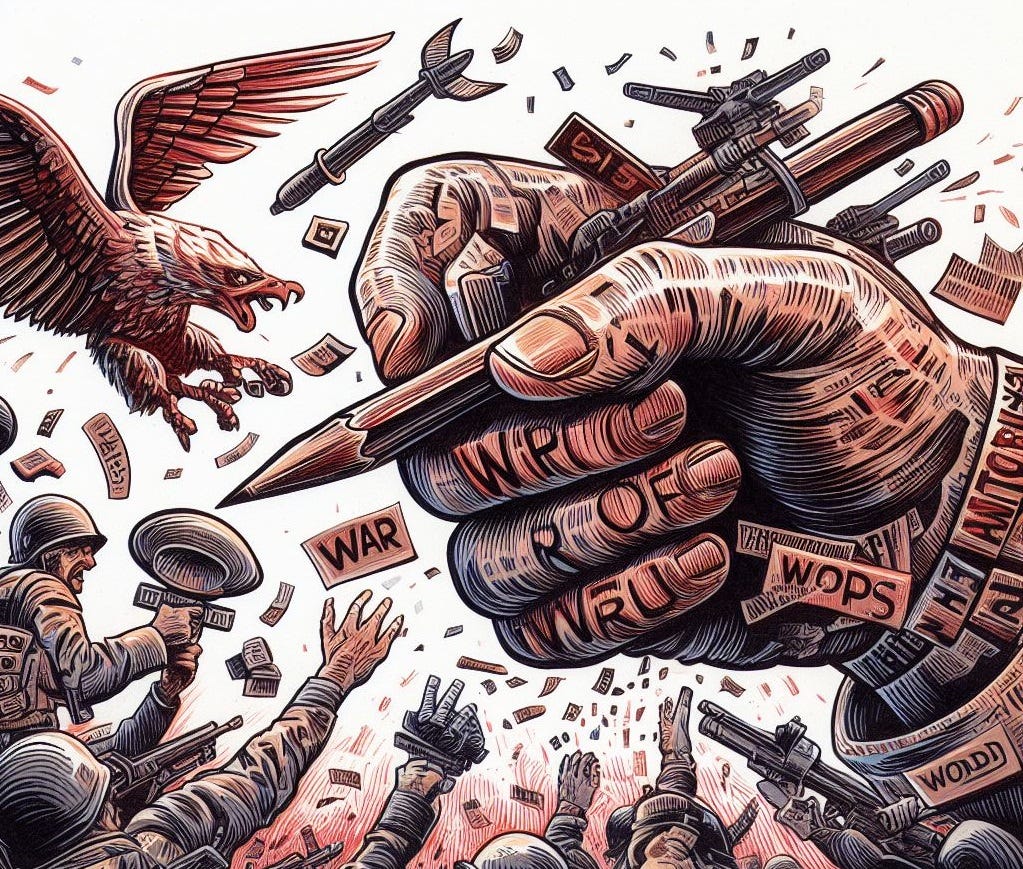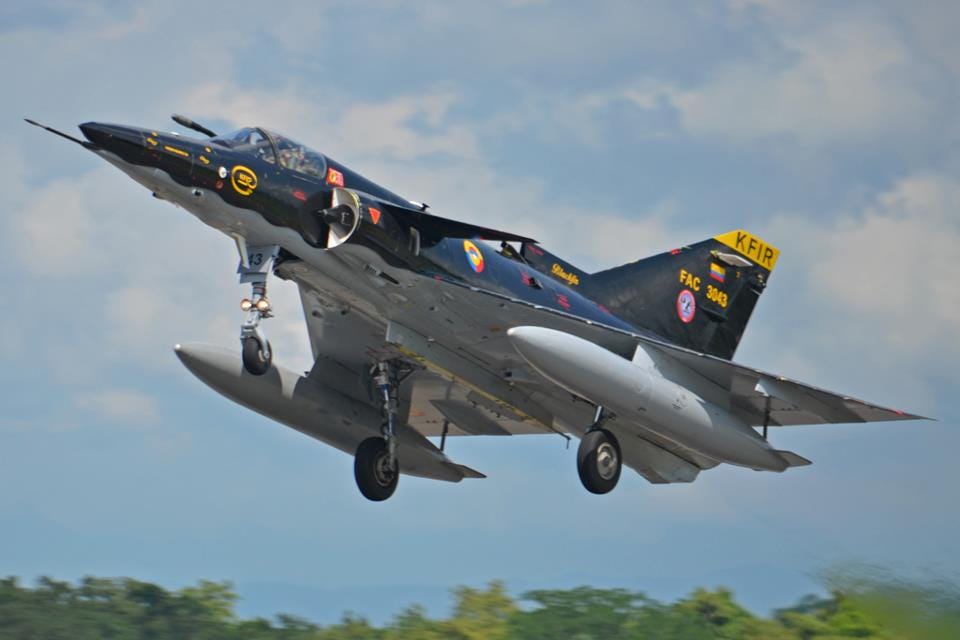Petro picks a rhetorical fight with Israel. But why?
The answer isn't simple, but it's also probably not what you expect
This is an installment of the “Ship’s Log”, more personal entries on the beats we cover for paid subscribers.
If you haven’t signed up for a paid subscription, we urge you to continue doing so. We have plans that start at just $5/month and the resources help us continue bringing you the stories that most big media companies miss.
If you have, thank you, and read on!
An online war of words over the weekend resulted in one of Colombia’s longest-running allies promising to cut off security exports— no small threat to a nation whose armed forces rely upon Israel almost exclusively for small arms, aircraft, and espionage tools.
Petro has grown increasingly critical of Israeli responses to a devastating and bloody attack carried out by Hamas that killed more than 1,200 people. He has compared the resulting siege on Gaza, which has included massive bombings on civilian areas, to the actions of Nazi Germany— comments which Israel’s Foreign Ministry called “anti-semitic” and “aggressive” which they claimed will “threaten the safety of the Jewish community in Colombia.”
The comments represent a serious schism in relations with one of Israel’s closest partners in Latin America. But what does it mean for Colombian armed forces? And why have so many of his supporters fallen in behind Petro over his criticism of Israeli policies?
No shortage of journalists are on the ground in Israel (and a number of them have been killed trying to document what is happening), and we at PWS don’t want to dwell on conditions there— we leave that to our colleagues who are putting themselves in harm’s way to bring you the stories.
But how the Israeli/Palestinian conflict is viewed in much of Latin America— and especially Colombia— bears closer examination.
Colombian security forces are dependent on Israeli arms
Israeli-designed small arms are standard issue for Colombian soldiers. The manufacture of the Galil rifle, in particular, has been a crucial point in the arms relationship between the two countries. But Colombia's dependence on Israel extends to other aspects of security, including military equipment, aircraft, heavy artillery, and special operations training.
The Galil rifle, of Israeli origin, is used by every branch of Colombia's armed forces. So important is its use that Colombia was able to get Israel to provide the patent to manufacture it through Colombia’s state-owned manufacturer Indumil.
If Israel does suspend security exports, the production capacity of these rifles in Colombia would be compromised, not only because of the permits that allow their production but also because many of the parts come directly from Israel before assembly in Colombia.
Indumil also produces pistols, explosives, and riot control weapons of Israeli design. Ammunition for small arms is standardized, and easily replaced, but in the medium term, they would need to replace the weapons with purchases from another country.
The only fighter jet in service in Colombia is the Israeli-produced Kfir fighter/bomber, which was used extensively in the country’s civil war. Colombia also buys Israeli-produced anti-aircraft batteries, missiles, and anti-armor weapons.
Some military experts have pointed out that while these weapons would not be difficult to replace in the medium term, doing so would require retraining pilots and soldiers to use them.
In addition to military weapons, however, Colombia also imports significant surveillance and spying technology— items that have been used by the military in several illegal surveillance operations conducted on politicians, journalists, and politicians.
Israeli instructors also conduct training exercises with Colombian special forces, police, and Intelligence services, which would also likely be disrupted.
The military branches in the two countries have long had a close and amicable relationship. But for a politician like Petro— the first leftist in modern history to rule the country, and a former rebel in Colombia’s brutal civil war— the political history between the two countries is complex, and from his perspective troubling.
A complicated history
Nearly half a million Colombians died in Colombia’s decades-long civil war, and more than 7 million more were displaced by fighting. All sides involved committed grave human rights violations, including the “false positives” scandal, in which 6,402 innocent civilians were murdered by the military between 2002 and 2008 and passed off as rebels.
At the time Israel was providing considerable support to both Intelligence and military forces in Colombia. Although the Israeli government was not officially involved, private contractors and Israeli mercenaries also provided training for Colombia’s infamous paramilitary forces.
Carlos Castaño, one of the “godfathers” of Colombian paramilitarism, claims he copied their formation and concept from the Israelis.
Israeli mercenaries were also in demand in 1980s Colombia and worked to “train and arm assassins” on behalf of Medellín cartel leader Gonzalo Rodríguez Gacha, an “extreme rightist who harbored the dream of building a neo-fascist state”, who has long been rumored to have been close with ex-president Alvaro Uribe.
Uribe considerably strengthened ties with Israel during his time in office (2002-10) as well as escalated the civil war with FARC rebels. During the civil war, Colombian intelligence also committed grave human rights violations, including perhaps participation in the assassination of domestic leftist presidential candidates.
Unlike in the U.S., which has been a strong ally of Israel across administrations of both Democrats and Republicans, Colombian ties were in some ways partisan— an alliance built by far-right governments in a time of deep social conflict.
Petro has long wanted to turn the page on the atrocities committed by the Colombian government during that period, and his opinion is likely at least partially informed by the relationship that Israel had with the politicians and military leaders who committed them.
Up until this most recent crisis, Israel has enjoyed largely unconditional support from Bogotá. That has obviously changed and reflects a polarization between the left and right-wing currents that ongoing conflict has long exacerbated.
But it’s also more complicated than that
In the U.S., support for Israel has long been bipartisan, as illustrated by Biden’s recent vocal support for military action in the Gaza Strip. Rhetoric from politicians on the Israeli-Palestinian conflict has long focused on terrorist groups like Hamas rather than the (often complex) political realities of Palestine more broadly.
But in Latin America more broadly, and perhaps Colombia specifically, the complicated dynamic has long been viewed as a liberation movement, especially in leftist circles. That isn’t unusual for a region where Liberation Theology still holds considerable influence, and where armed rebel groups have long waged war against hostile states they viewed as propped up by colonial powers.
When I first arrived here almost a decade ago, I remember an Israeli friend asking me why there were often Palestinian flags at protests in Colombia. A Colombian friend of mine, luckily, answered the question for me. “People here feel an affinity for their situation,” she said. “It’s a liberation movement against a colonial power. In some ways, we are cousins.”
That’s a viewpoint that many on the right would strongly disagree with, but it also illustrates a point that I think is lost on many Westerners watching the unfolding bloodshed in the Gaza Strip: Colombians understand the daily reality of what living amidst a war means all too well. After all, they’ve experienced nearly a century of it.
When Petro speaks of “genocide” in Israel, his base understands his language. There is little doubt that his Twitter outbursts were undiplomatic and likely also irresponsible, especially in the comparisons to Auschwitz. But they are resonating among his base for very understandable reasons.
I don’t think they will mind much if Israel follows through on its threat to cut off weapon sales.





The outburst of Petro is linked to the Soviet Propaganda of Freedom Fighting and is quite anachronic. IRA and ETA stopped. Guerrillas in Colombia became drugdealing armies, the Palestinian PLO governs corruptly the Areas given by Oslo Accords in luxury while people have to come to work to Israel. Hamas leadership lives nicely in Qatar , while Gazans depended on the enemy on work, health and basic services as water and energy. I understand the political coherency against the inequity, but Hamas actions are not the official and internationally voice of the Palestinian Claim. Every Palestinian that is Arab Israel tries to distance themselves from Hamas, even Abbas to avoid the international tag as terrorist.